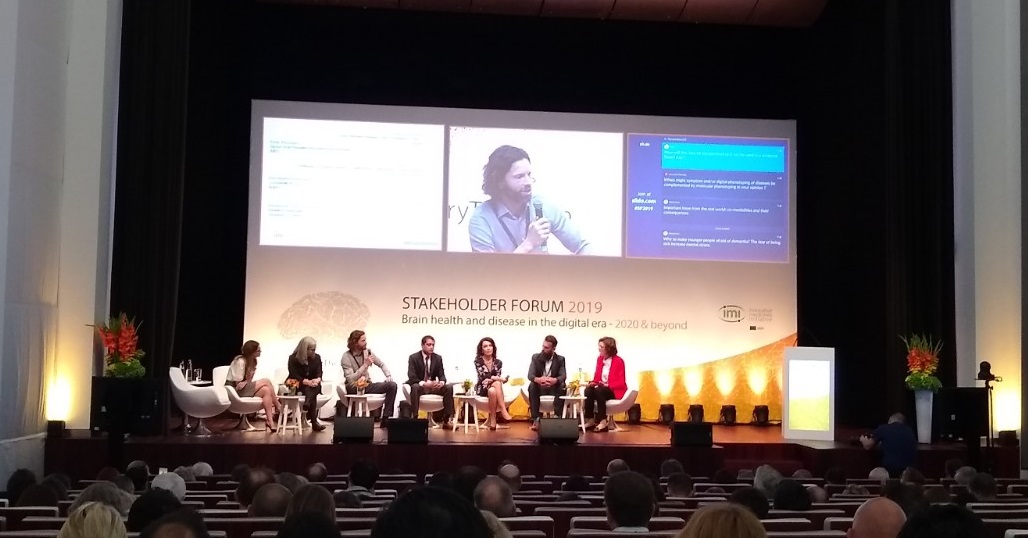The IMI Stakeholder Forum 2019 took place on Wednesday 12 June in Brussels, Belgium. The theme was "Brain health and disease in the digital era - 2020 & beyond".
IMI stands for Innovative Medicines Initiative and is the world’s biggest public-private partnership in the life sciences. It is a partnership between the European Union and the European pharmaceutical industry. IMI facilitates open collaboration in research to advance the development of, and accelerate patient access to, personalised medicines for the health and wellbeing of all, especially in areas of unmet medical need.
We’re pleased that Kim Baden-Kristensen, CEO of Brain+ and coordinator of the AD Detect Prevent consortium, was asked to be part of the discussion panel that day on Brain health and prevention.
Brain + is a digital therapeutics company that helps people, who are suffering from neurological disorders, -disease and brain injuries to restore their fundamental cognitive brain functions to full health and functionality via a therapeutics platform.
In the video below Kim explains more about the mission of Brain+ and how they want to achieve that mission.
The discussion panel on ‘Brain health and prevention’ was about the shift of healthcare from reactive treatment and care to early detection and prevention, and the increasingly active role patients play in managing their health. In this session different stakeholders discussed how they are engaging with digital health technologies, and how they are demonstrating reliability and performance of these technologies while assuring compliance with legal, regulatory and ethical requirements.
Here you can find a list of the different stakeholders that were part of this panel (p. 1).
In the video below we included 3 questions that were asked by the moderator and answered by Kim, which were:
1) How do we stop people diagnosing themselves with Dr. Google results?
2) Who’s going to pay for digital solutions?
3) What do you think IMI (as a public-private partnership) should be doing?
If you’d like to see the full discussion on this ‘Brain health and prevention’ session click here.

